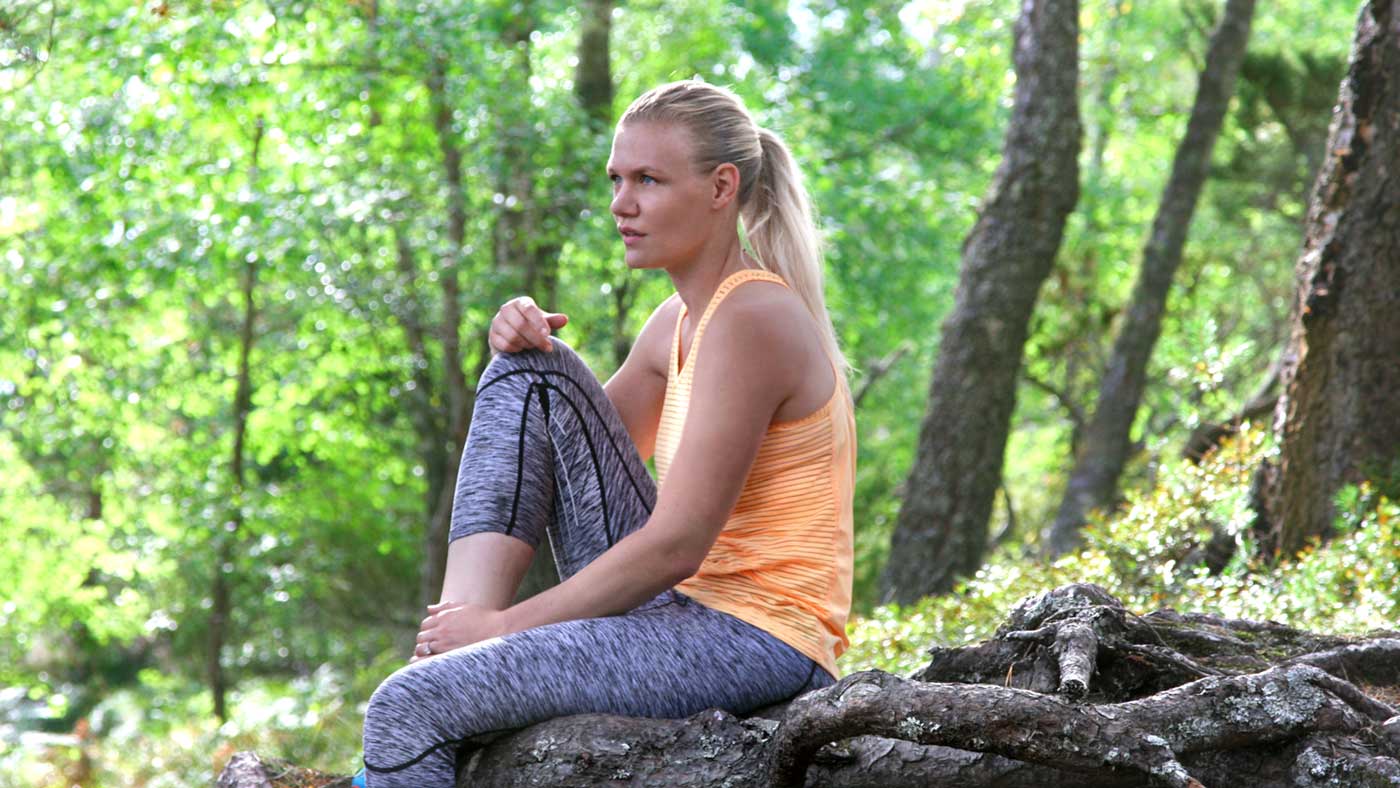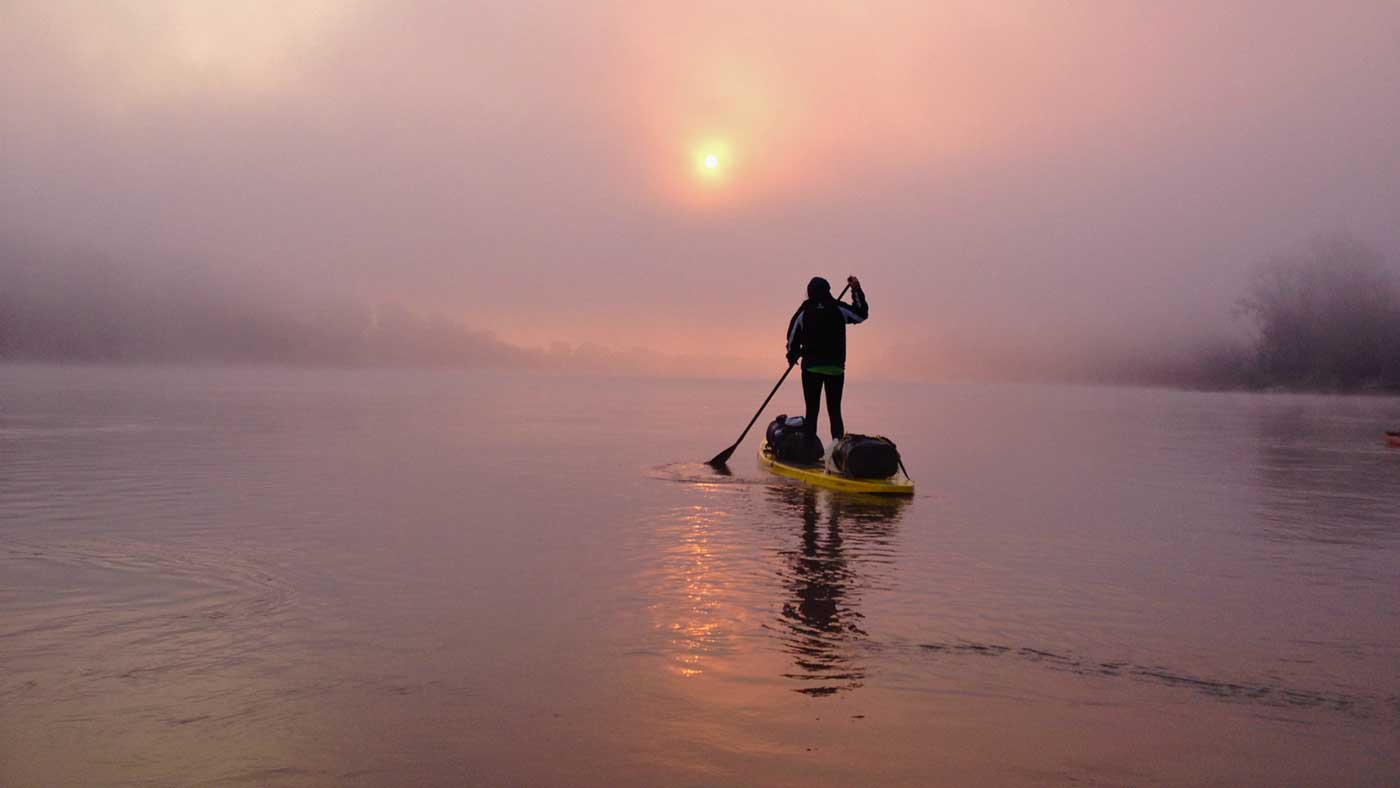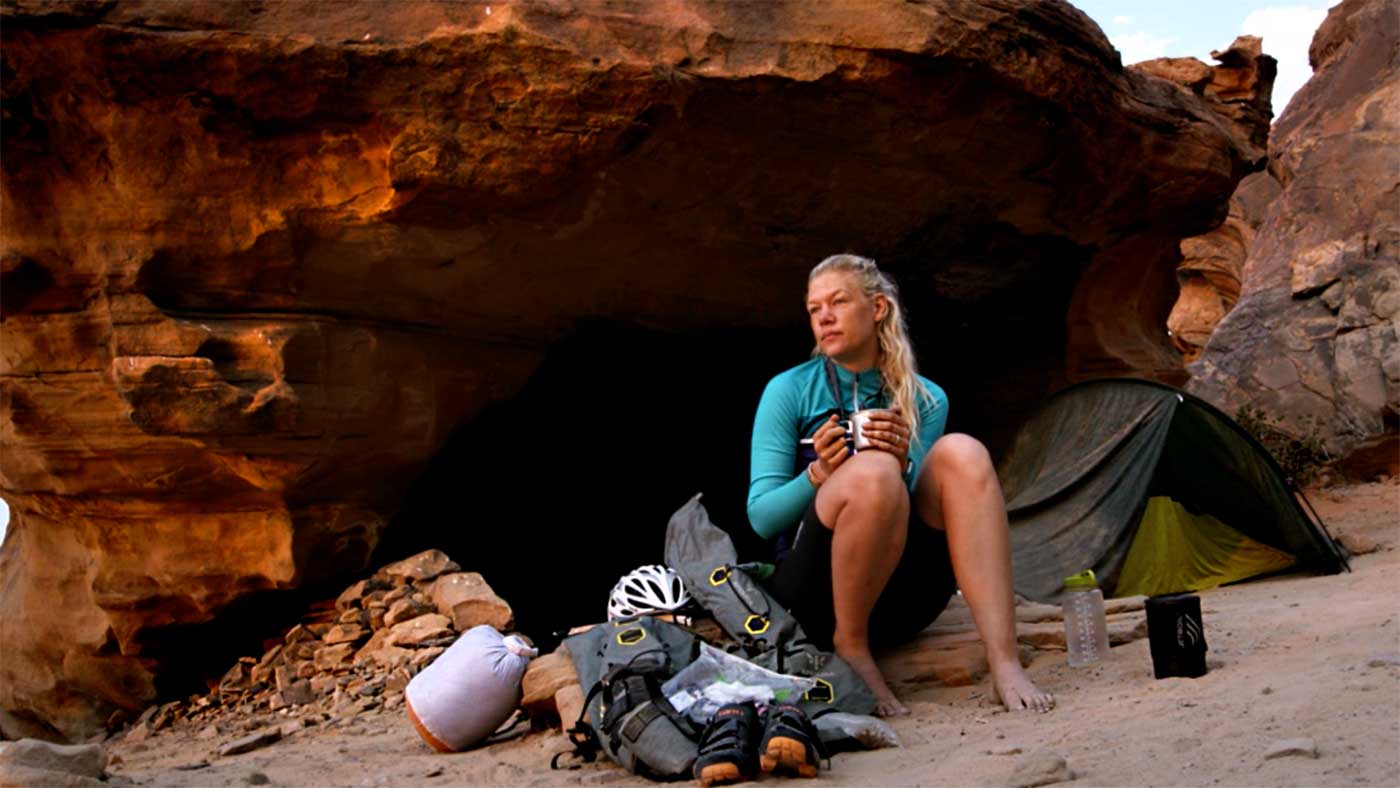Ness Knight: Explorer extraordinaire takes on the Pacific
The adventurer is aiming to be the first woman to row solo non-stop from the US to Sydney after learning life lessons in the Bolivian jungle

A free daily email with the biggest news stories of the day – and the best features from TheWeek.com
You are now subscribed
Your newsletter sign-up was successful
I get asked a lot about what I actually do for a living. When I reply stating that I am an explorer it's normally met by a blank look on people's faces. The job doesn't actually exist for the most part. On online forms the dropdown option for occupation doesn't exactly list explorer or adventurer, so officially my job title is just 'other'. I suppose the most appropriate description is that I specialise in making a living out of hauling everything I need to survive with me around remote corners of our planet, and telling the story of those experiences.
My first taste of true wilderness and wildlife and, I suppose, what made me fall in love with real life expeditions, was a journey I did nearly a decade ago deep in the jungles of Bolivia rehabilitating ocelots and pumas. This is where I met my life's biggest teacher in leadership, Milly the ocelot. I was attacked by her every single day until I stopped practising the extensive research I had done, and started listening to what she was trying to tell me herself. She taught me that good leaders aren't the ones who know everything under the sun, but those who are able to find resources and listen to the environment and those around them.
It was last year, when I cycled solo down the north Namibian desert that I encountered the most terrifying day of my expedition life so far. The bad mind-set caused by losing a bit of biltong, my treasured daily food reward, resulted in me making a reckless and dangerous decision while trekking through drought-ridden lion territory, physically exhausted and dehydrated: to continue through the peak hours of the day in 50°C heat. I ended up passing out 200 metres from a fresh lion kill, thankfully to be found soon after by my lion warden who was scouting 5km ahead. This taught an important lesson; that you can be physically an extraordinarily strong person, but if you don't take care of your mental strength you are undoubtedly going to falter.
The Week
Escape your echo chamber. Get the facts behind the news, plus analysis from multiple perspectives.

Sign up for The Week's Free Newsletters
From our morning news briefing to a weekly Good News Newsletter, get the best of The Week delivered directly to your inbox.
From our morning news briefing to a weekly Good News Newsletter, get the best of The Week delivered directly to your inbox.

Under enough pressure, even the smallest friction points can easily become major catalysts for frustration and, ultimately, bad decisions.
My next adventure will be rowing solo, non-stop and unassisted across the 7,000 nautical miles of the Pacific Ocean from San Francisco to Sydney. As I'll be at the complete mercy of the ocean current and weather systems, it could end up being more like 9,000 nautical miles, over six months out at sea alone. I am setting out with the aim of breaking three world records – first female in history to row solo and non-stop, fastest crossing and youngest person to achieve this solo row. Mentally, I have to be prepared for all possible challenges I may face, and repeatedly visualise and practise my responses to those scenarios pre-row so they become automatic. This visualisation will be one of the key elements in the success of this expedition.
Simply training doing normal rowing on flat river water doesn't cut it in the world of ocean rowing, as once you are out in the open sea, it is unpredictable and often rough. In these conditions you tend to only have one oar in the water and are using many more muscle systems. My plan is to do a good deal of indoor rowing to get used to hours upon hours of doing the same thing, in the same position, and with the same general motion. Outside of this I will be working on three core areas of fitness: increasing my muscle mass, improving core strength and developing a good level of flexibility to prevent injury. From a psychological perspective, I will be working with some of the best sports psychologists in the UK, building and testing strategies that will help me cope well when I am face-to-face with unexpected physical and mental challenges under huge amounts of pressure.
As I am going to be completely transforming my body from basic fitness to peak athletic performance, statistics are going to be taken at a university lab to track these changes at specific stages; base level fitness, another prior to departure when I am at peak performance level and finally upon completion. At this point I will be pretty skeletal with very little mass left. To endure the trip I will be putting on a little body fat (which will be used up fairly quickly due to long hours of rowing day in and day out), at which stage my body will switch to using muscle mass for energy. Very rarely are we able to understand and examine this level of extreme endurance over such a prolonged period of time, so it's important to track the effects it will have on my body, as it's likely that even my bone density will have dropped dramatically. It will offer a fascinating insight into our survival mechanisms.
A free daily email with the biggest news stories of the day – and the best features from TheWeek.com
We are hoping to organise a phone call from the middle of the Pacific to the astronauts on the International Space Station. The idea would be to live stream this to the world, specifically schools, and use it to encourage more children into STEM subjects [science, technology, engineering and maths]. I may be an explorer and the public face of this expedition, but everything I do relies on the minds and efforts of people who have worked in all of these subjects. This spans the engineering of the boat, the campaigning around ocean awareness and even my nutrition, where I am working with experts to try to lower my sugar and carbohydrate intake and up the intake of good fats for more efficiency over long periods of endurance.

What I have learnt over the years is by focusing more on collaboration and bringing together some of the best minds in the world, you are able to build projects that far exceed the impact of those you are able to achieve alone. The team dynamic is also crucial – you need partners or people that have three key traits; they need to be like-minded and buy into your idea, be experts in their field, but also be humble as there is no room for ego when you are working on projects that attempt to push the boundaries of what we consider humanly possible. It is wonderful to be able to do things solo and to have that sense of accomplishment, but to take any project or idea to the next level we need to learn to collaborate.
There is a lot to learn from expeditions to extreme and remote environments, both from the successes as well as from the many failures. Through my journey I have realised that there's an incredible lack of tolerance of failure in our society today. I don't think that is a good thing. If you are not going out there and failing – and failing multiple times – then you are likely sitting in your comfort zone and not innovating. How can we ever progress this way? A lack of tolerance of failure, quite simply put, stifles innovation. I constantly try to seek out calculated risks, as a risk is good and productive if it's done in the right way. We learn as much from the things that go wrong as we do from the things that go right.
NESS KNIGHT will be setting off in April 2018 on a solo, non-stop row across the Pacific from North America to Sydney, Australia; nessknight.com
-
 Political cartoons for February 16
Political cartoons for February 16Cartoons Monday’s political cartoons include President's Day, a valentine from the Epstein files, and more
-
 Regent Hong Kong: a tranquil haven with a prime waterfront spot
Regent Hong Kong: a tranquil haven with a prime waterfront spotThe Week Recommends The trendy hotel recently underwent an extensive two-year revamp
-
 The problem with diagnosing profound autism
The problem with diagnosing profound autismThe Explainer Experts are reconsidering the idea of autism as a spectrum, which could impact diagnoses and policy making for the condition